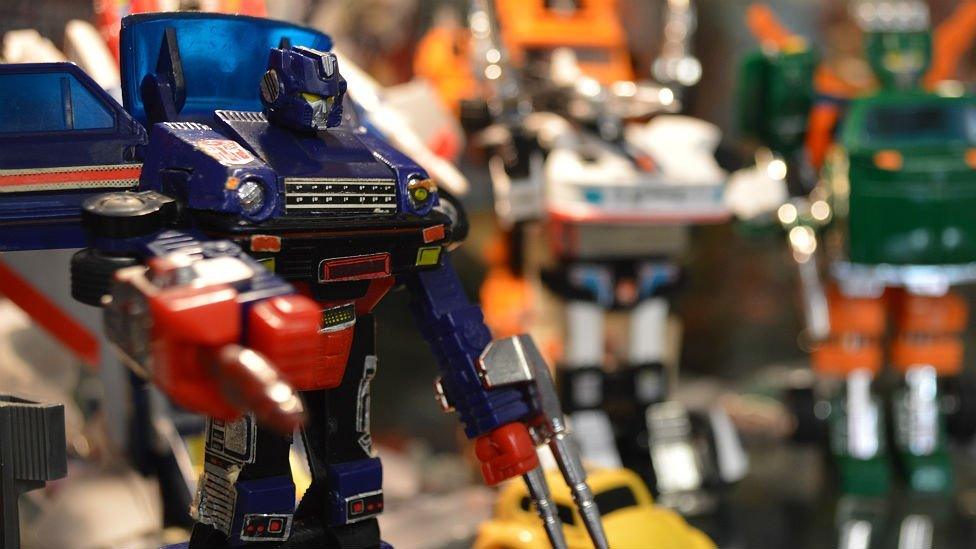Star Wars and Action Man: The rise and fall of Palitoy
- Published
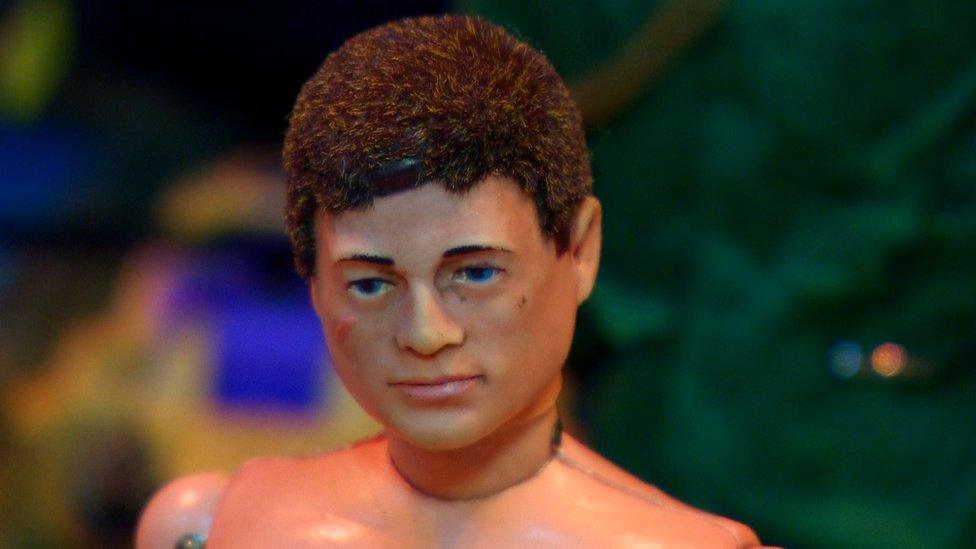
Action Man was a hugely popular toy brand in the UK
Action Man, Care Bears and Star Wars figures were toys almost every British child in the 1970s and 80s couldn't wait to get their hands on. So why did Palitoy, the company that made them, fall into decline?
They were once the must-have playthings coveted by children across the UK.
Christmases and birthdays were rarely complete without the presence of an Action Man, a Care Bear, a Tiny Tears doll or a Star Wars figurine.
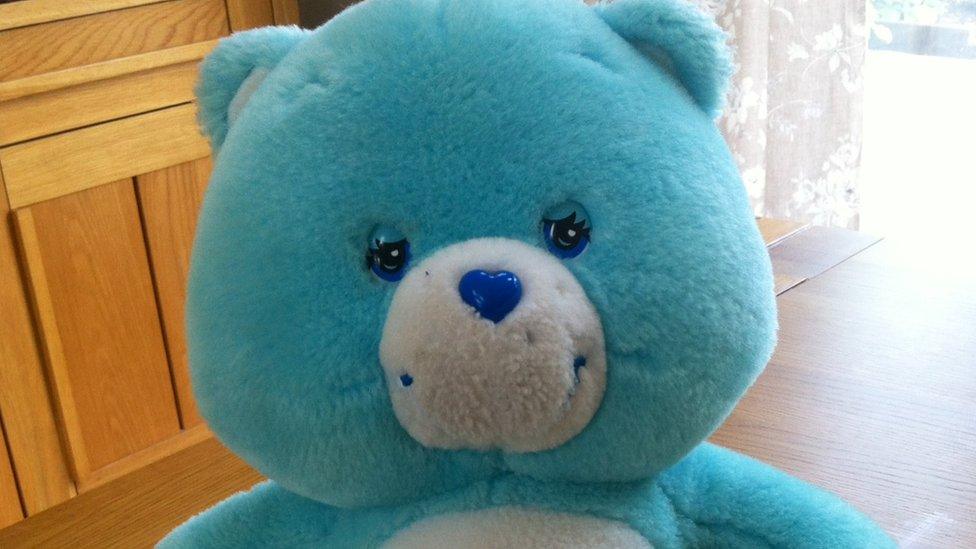
Care Bears were another popular Palitoy brand
All of these toys were made at Palitoy - a company based in the industrial town of Coalville, in Leicestershire.
Yet at the height of its selling powers, the firm was being wound down and closed. What led to its demise?
Action Man was one of Palitoy's most famous creations
The company, originally named Cascelloid, was founded in 1919 by a man named Alfred Pallett.
The toy division, which produced toy windmills and baby rattles, became part of a larger plastics factory.
By the 1950s and 60s, Cascelloid's toy section was performing strongly and it created a separate toy division named Palitoy - a nod to the company's founder.
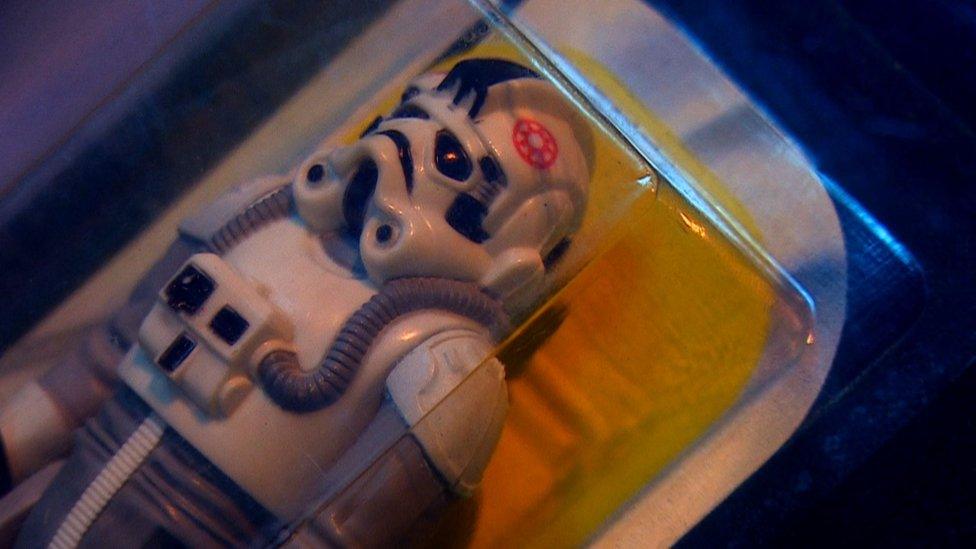
Palitoy began to produce Star Wars figures in the 1970s
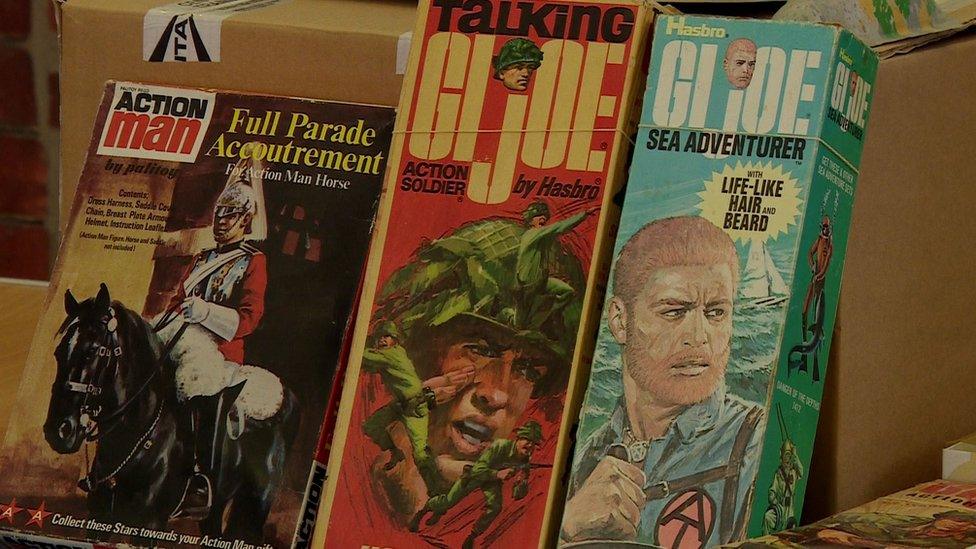
Action Man was originally the British answer to the US toy G I Joe
In the 1960s, 70s and 80s brands such as Spirograph, Airfix and Tiny Tears were really taking off.
Alongside them was one of Palitoy's most enduringly popular toys - Action Man.
Launched in 1966, Action Man was originally based on the American toy G I Joe.
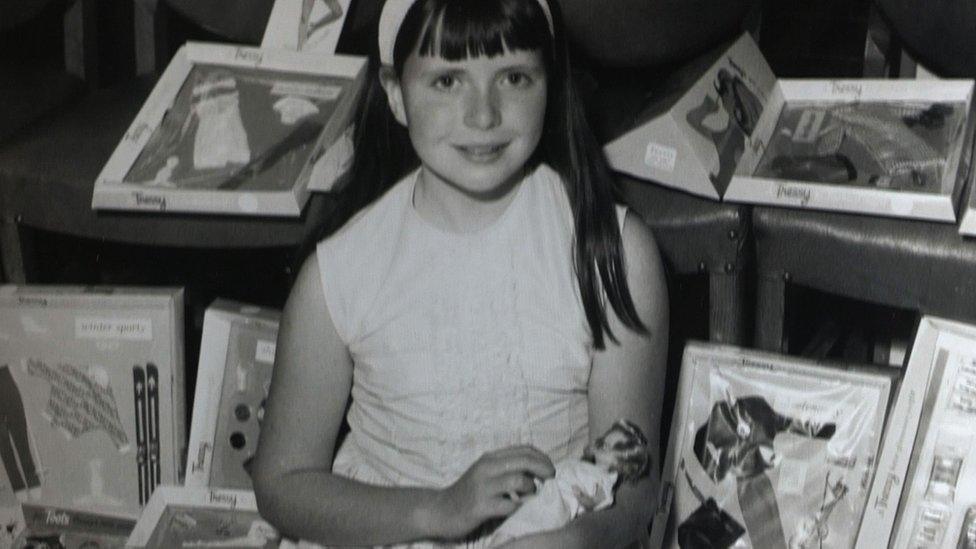
In the 1960s, many of Palitoy's toys found enormous popularity
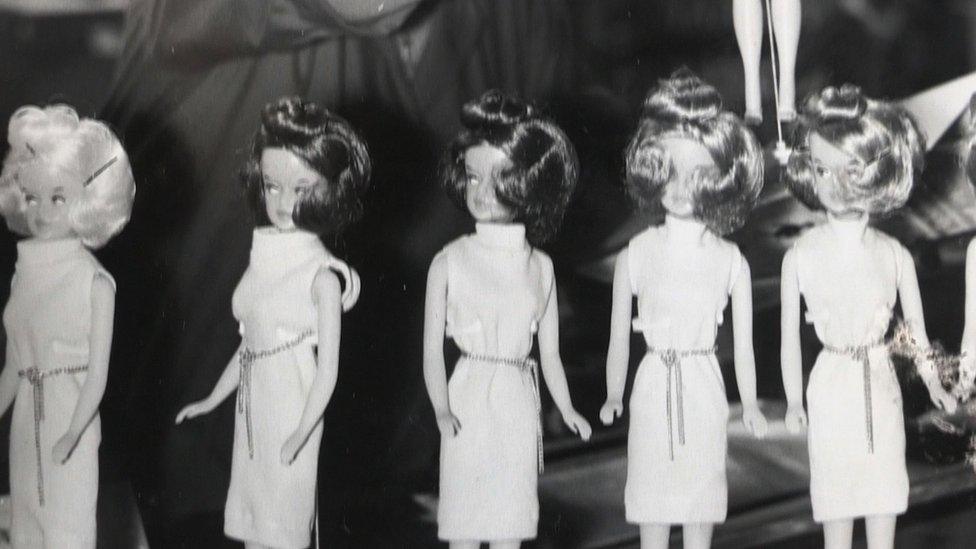
The brand was bought by US giant General Mills in 1968
But the design was inherently British, with Action Man driving Land Rovers and Scorpion Tanks and wearing anything from a Grenadier Guards uniform to a Manchester United strip.
And the character's most famous feature, his gripping hand, also had its origins close to home.
Former chief toy designer Bob Brechin said he modelled the body part on his own.
"We turned him into a British toy," he said.
"We came up with the idea of giving him hair on his head, rather than just painted hair, and gave him his distinctive gripping hand."
All of this home-grown success brought Palitoy to the attention of the international market and in 1968 it was sold to the US giant General Mills, which already owned other toy producers.
By the late 70s, the success of Action Man meant expansion for the business, with sales topping 20 million.
Palitoy was producing many of its figures on licence, meaning it manufactured other companies' ideas and paid for the privilege.
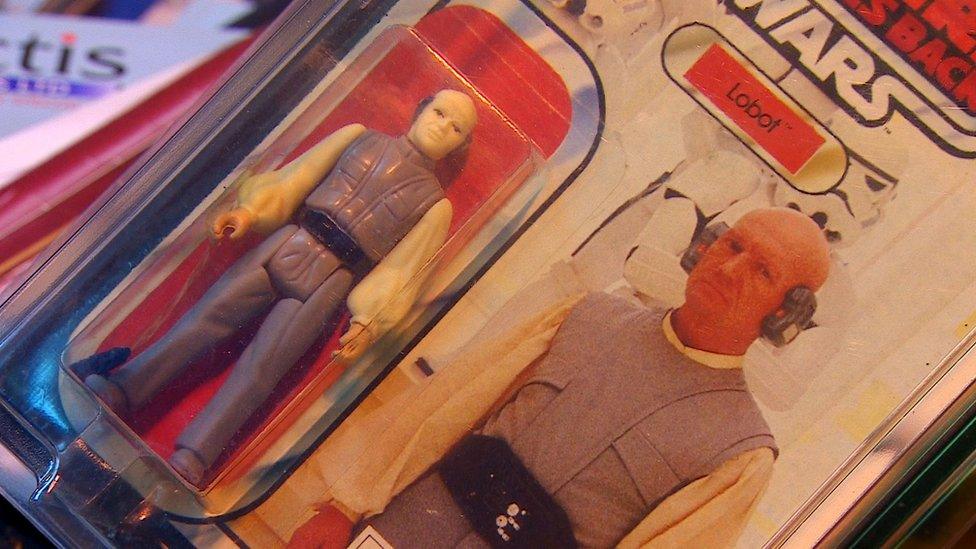
Palitoy acquired the licence to produce Star Wars figures
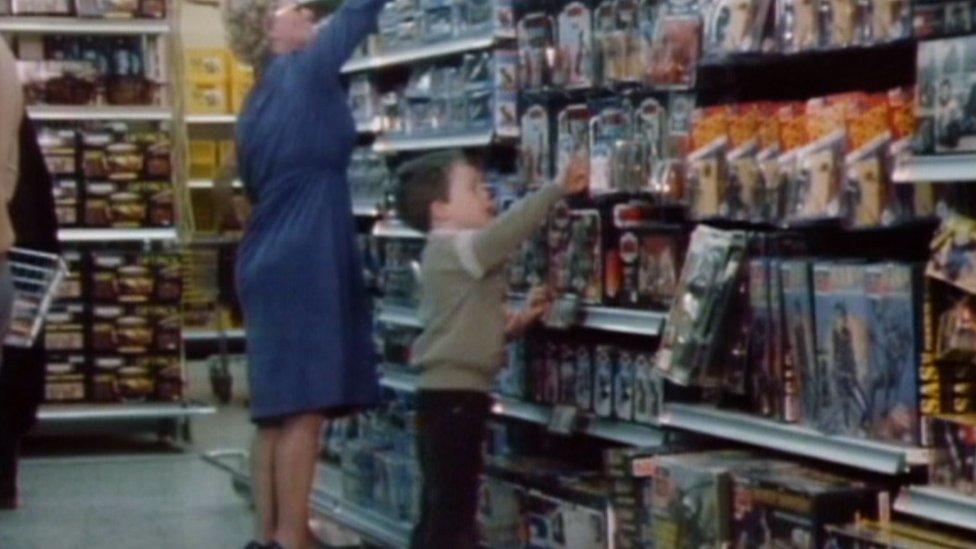
Children loved the toys but, behind the scenes, the staff who made them were losing their jobs
One of the most successful franchises it took on was Star Wars, which became the company's biggest-ever seller.
The firm was responsible for the redesign of some Star Wars products for a UK audience, including a cardboard, self-assembly version of the Death Star.
Mr Brechin said the plastic playset was originally considered too expensive for the British market.
Nowadays, the card Death Star is hugely collectable.
"I am really chuffed that the collectors, even in the States, are so keen on our design," Mr Brechin said.
But behind the cuddly toys and action figures, a corporate strategy was at work that would spell the end for the company.
By the early 80s, the production of most of the toys had shifted to Hong Kong.
It was a cheaper process, but the beginning of the end for Palitoy.
The first two years of the decade saw redundancies within the company, despite the fact that, by 1983, it held between 10 and 15% of the British toy market.
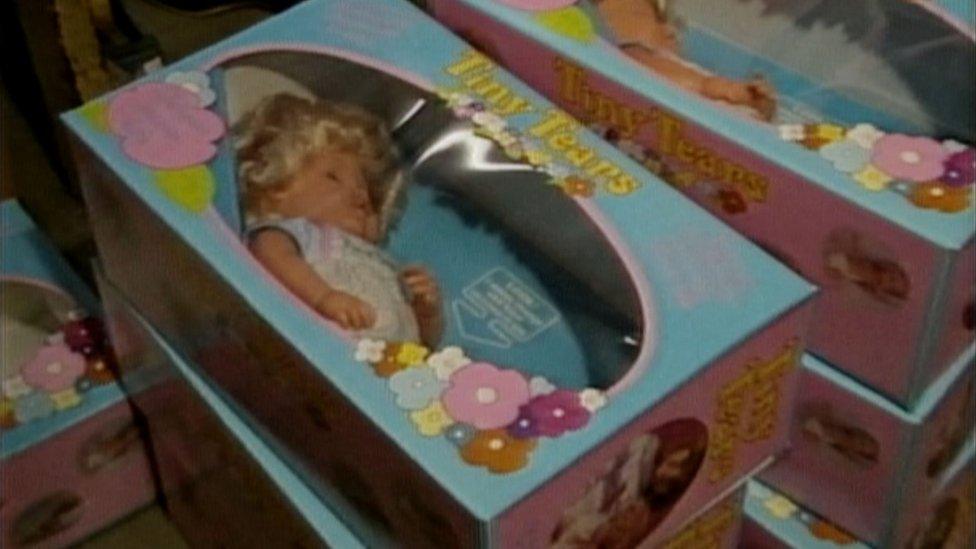
The success of products such as Tiny Tears brought Palitoy to the attention of an international market
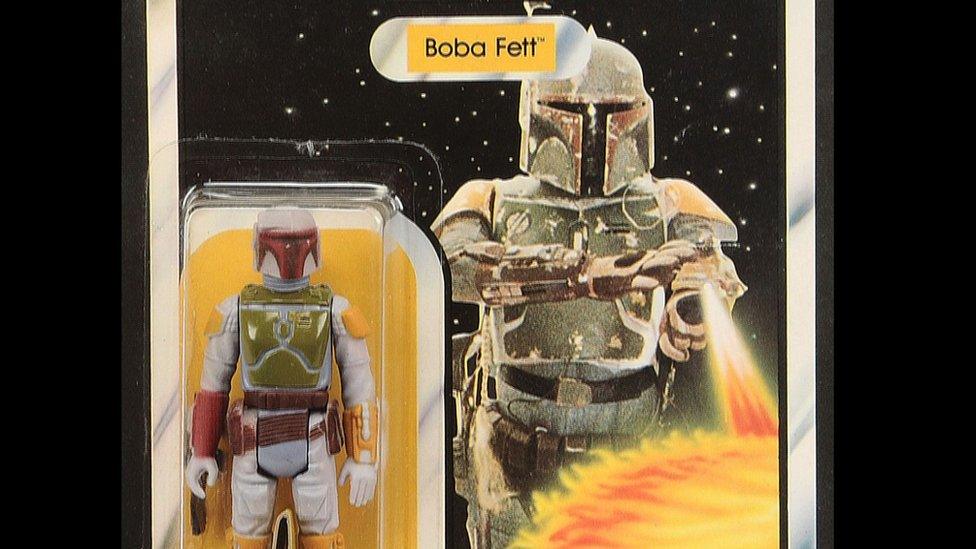
Today rare Star Wars figures such as Boba Fett attract huge interest from vintage toy collectors
In 1984, Palitoy's design and development departments were shut down when General Mills decided to abandon all European product development.
Although many of the lines continued to be manufactured by other producers, Palitoy, in effect, became a marketing company, repackaging products designed in the United States for European markets.
By 1986 it had ceased trading, and in 1994 the Coalville site was eventually closed, although production had ended there many years earlier.
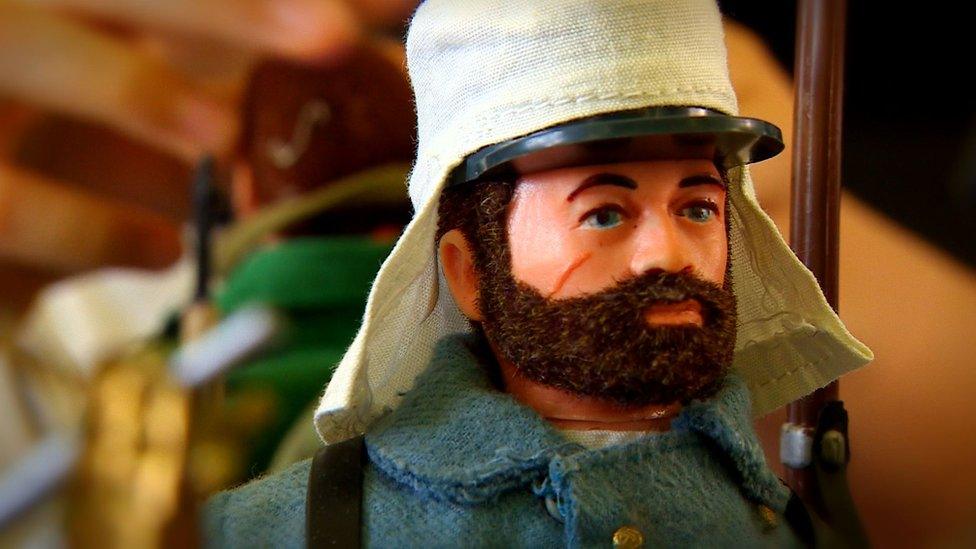
Action Man figures have also seen a resurgence in popularity among collectors
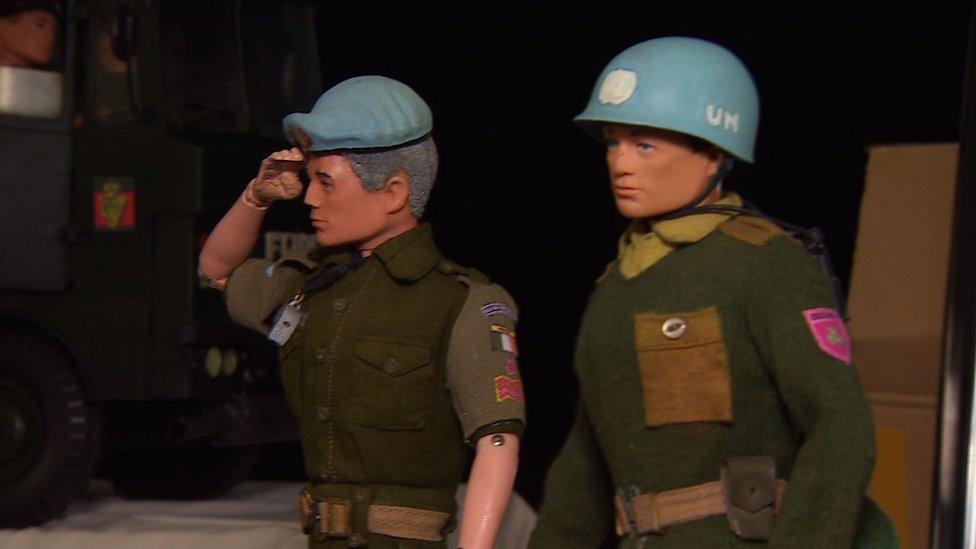
The Palitoy name has become hugely attractive at toy auctions
Yet today the Palitoy name is big business once again - this time, at collectors' markets.
One Star Wars figure, the bounty hunter Boba Fett, sold for £18,000 at auction, which experts say is a world record for an action toy.
"It's crazy, the prices they fetch," said Mr Brechin.
"You can't believe people are collecting things that were just work to us.
"I just wish I had kept a few."
Inside Out is broadcast on BBC One East Midlands at 19:30 on Monday 14 September and nationwide for 30 days thereafter on the iPlayer.
- Published27 May 2015
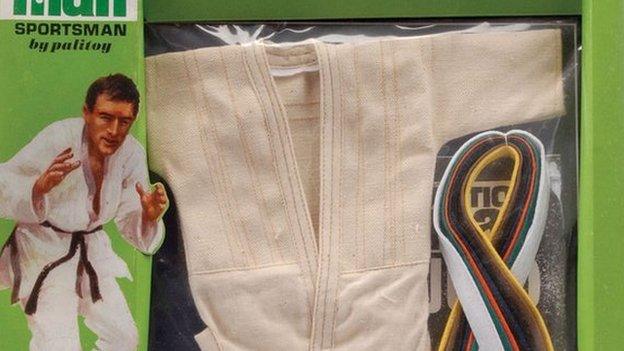
- Published29 January 2015
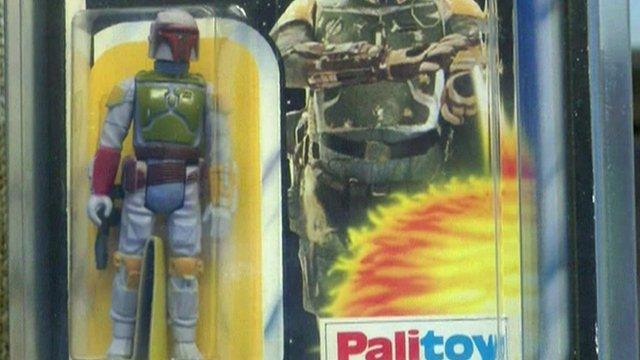
- Published20 March 2015
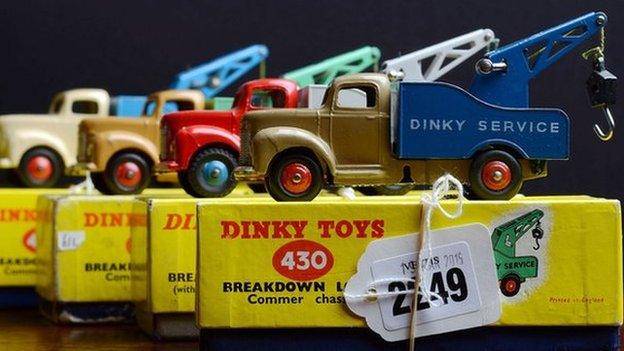
- Published26 December 2014
